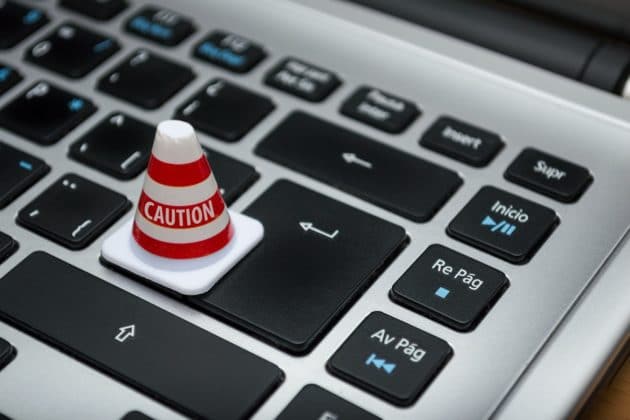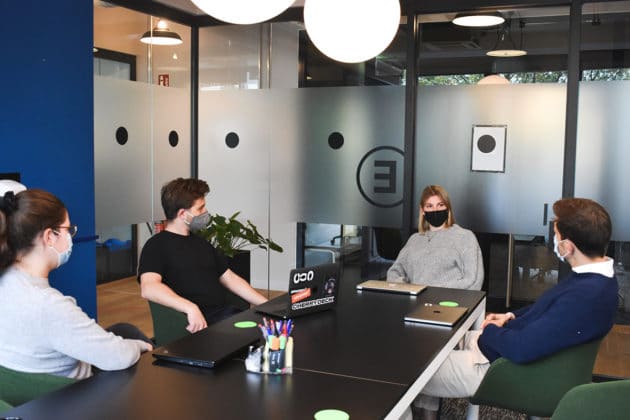Since the past couple of years, there has been a tremendous change in the work culture due to safety concerns. Technology opened new doors and avenues between us and our workplace. Three main models are being followed – centralized workplace, decentralized remote organization, and hybrid. In 2022, we are likely to see many more changes, and the workforce will have more choices.
Although, there is a widespread shift away from offices and centralized workplaces for many occupations or the frontline workers, this is not an option at all. There was barely any impact on healthcare, retail, security, and many other industry professionals.
According to research, organizations are restructuring themselves. In 2020, many of the companies saw an overall decrease in the office space being used. There will be permanent centralized offices along hot-desking because staff will have to work remotely. Co-working spaces will be needed more along with serviced meeting rooms to manage the remote workforce in the hybrid structure. Go through the Gillette case study on how to remain in the top-notch position as a market leader.
Artificial Intelligence and Automation to Lead the Workforce

New jobs will be created and those in the existing jobs will see their roles changing. Artificial Intelligence will help in augmenting the employee’s abilities. Repetitive elements in everyday work will be automated. Workers will see more images and use emotional intelligence and better strategies.
Doctors will be in a better position to check the medical records and lawyers can avail technology to bring down the time spent on checking the case histories. Artificial Intelligence or AI will also help the retail sector with inventory planning. There will be many tools for marketers to carry out the campaign.
Recommended for you: Tech Solutions for a Better Remote Work Experience.
Having resilient staff

After the pandemic, the hiring process is not only focused on employees who build efficient organizations. Rather, companies want to build resilience and understand the importance of employee healthcare. The physical, mental, and financial well-being is taken care of. Companies should also not be invasive of employees’ personal lives. Any process to implement resilience must be flexible.
Focus on the skillset

There is more focus on skills required to drive the competitive advantage of a company rather than on the roles. The core business challenges are addressed by critical skills. Businesses are easily able to address the fact that a skillset is a key to driving innovation in the digital age. By 2022, both companies and employers will understand the importance of the shift from roles to skills. The crisis has forced companies to change their policies overnight.
Building employee’s cognitive capabilities

Before the pandemic, there were major changes in technologies too. There were major skill gaps and companies were rapidly changing conditions. The workers had to adapt themselves to the new roles and activities. To accept the challenging situation and work companies have to develop a talent strategy.
An employee’s critical digital and cognitive capabilities have to be taken care of. Their social and emotional skills need to be nurtured along with adaptability and resilience in the workplace. Companies need to invest in learning budgets and have to constantly re-skill each employee. This will help the employee to prepare themselves for future disruptions.
Building a better distance economy

To avoid physical interaction companies have leveled up digitalization. They have reinvented work in a way that there is lesser disruption at work. Employee cross-training in specific services increased and was supported with better digital tools. Companies need to rapidly identify the skills for the recovery model which will shore up the future.
Mapping out skill pools for exact contributions and facing day-to-day work challenges. A tailored learning journey will help in closing the critical skill gaps. Companies need to ramp up and reshape their business model. Companies need to increase their scale and cost-effectiveness.
Creating a big impact

Companies must-have digital tools that re-create the best workstations for workers. There must be constant live video sessions to build a deep sense of cohesion and avoid any kind of technological disruption. If a company builds its institutional learnings, it will be in a better position to use them during disruptive events.
Get a clear view of their skill deficiencies. It is critical for companies to rapidly build upon workforce capabilities. The shifting marketplaces and roles have made it compulsory for companies to have a recovery business model to succeed. Small companies have a better view of their skill deficiencies. They invest in employee training budgets.
Investment in new technology

Companies want to drive efficiency by investing in technology that is designed to monitor and track employees’ behavior. Remote workforces need constant feedback and review. Many companies have installed software on their computers to track the activities of the employees. The software can let the managers know how much time employees spend on each task and can also send screenshots.
You may like: Essential Tools you can Use to Increase Productivity When Working from Home.
Switching to the green transition

Companies will try to build a sustainable future. In 2021, companies were focused on building green skills but could not draw a concrete plan on how to make the transition effective. Employers must put across a cohesive strategy by assessing the skills of the organization in the next, say, 5 or ten years.
Talent retention troubles to grow worldwide

There will be a radical shift in the relationship between the employees and their companies. Workers are still in the thinking mode that is important for them. This is the great re-evaluation year which might force people to leave jobs in record numbers. It is noted that the employees now have an upper hand. There will be a talent scarcity problem due to an aging workforce, skill mismatched, and labor mobility. Workers feel disengaged in their career prospects and companies must upskill the reskill workers’ career development.
Focus on equity and social protection in the workspace

Companies will start considering that each worker faces different circumstances. Workers have different circumstances, and there must be specific resources and opportunities to expect good outcomes. For instance, the pandemic had a disproportionate impact on women.
During the pandemic, there was a great emphasis on social protection for workers but not all have equal access. There should be better protection for both informal workers and self-employed workers. Rampant inequalities between countries and regions were seen. Inequality and inclusion are also seen in in-person workers and remote workers. Leaders must find a balance in managing their teams.
Leaders taking accountability and transparency at work

It will be crucial for leaders to move forward without considering new legislation and transparency. They have to be more accountable.
Corporate empathy will play a good role, and leaders have to understand their workforce. Thought leadership and public pledges taken by companies and countries will be judged. Companies cannot make fake promises. This will be the year of reckoning, and workers need a good place to work. It was also spelled out loud in the Conclusion dissertation that leaders need to be more responsible and approachable.
Companies are more prepared than before

After the pandemic companies have started building up themselves in a manner that they can easily cope with unforeseen challenges. There is a good focus on remaining agile as the future is still uncertain. The new variant is already out, and it might have a significant impact on economic growth. When the world was on the verge of getting back to normalcy, a new variant has landed.
Flexibility is the key

Flexibility is the only key component to keep workers safe and sound. Business leaders need to lighten things up during the chaos that surrounded the pandemic. People should be kept engaged in the best possible way. Constant supervision by managers while remote working will help employees not feel so isolated and left out. Share technology tips as and when required to meet the goals.
Continued employee growth and thinking of their well-being

Companies will have to work on building a culture where there is a work-life balance. The pandemic will further continue to bring more stress and burnout among the employees. Companies should provide additional employee benefits like allowing them better flexibility and an overall positive workplace.
Emphasis on soft skills

There is a dire need to build relationships in the virtual work culture. There is a reduced oversight and as per many surveys, soft skills were the most identified top skills needed in an employee. Further, there should be more emphasis on diversity, equity, and inclusion.
In the year ahead there will be many uncalled challenges that the company needs to address. Firms need to shift routines. Employees have to keep adjusting to new tasks and recognize new opportunities amidst calamities. They also have to step in and take new responsibilities and have better interpersonal connections and communication.
You may also like: Workplace Ergonomics Tips: How to Stay Healthy in the Office?
A look into 2022

Covid-19 will still influence workplace behavior in 2022. Companies will have to pay importance to the employee’s healthcare. Companies have to ensure that workforce is vaccinated, wears masks, and maintains social distancing. For any organization, ensuring proper hygiene should be a number one priority. The pandemic has spurred workforce transformations at a very rapid pace. Skill development is now more essential than before.
This article is written by Rose Haughes. Rose is a finance professional and works with a multinational company in London. She also works as a consultant with MyAssignmenthelp.com and supports the educational requirements of students. she likes to sing, and the script plays in her free time.





